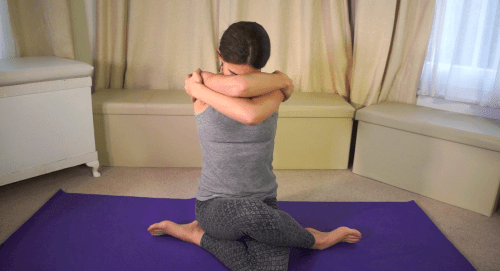
I am fascinated by articles about self-care. The anxious writers address the needs of their stressed-out readers by trying to sell them products like scented candles and weighted blankets. I do want those products, but I buy books instead.
Eleanor Morgan at The Guardian has a different spin: she writes about single women who are isolated during lockdown and are not getting enough hugs. She thinks the lack of hugs is damaging her subjects’ mental health. And the sympathetic Ms. Morgan leaves even the hugged of this world feeling sad: she quotes an Oxford evolutionary psychologist who claims the average person has FIVE BEST FRIENDS. And they’re all huggers.
Naturally, I felt desperate by the end of the article. I asked my husband, “Do we have five best friends?”
“No.”
“Then we might have to move to Oxford.” Heavens, that Oxford evolutionary psychologist must have quite a social life.
Even at the height of popularity (perhaps college? or my long-distance bicycling late forties?), I had many acquaintances but few close friends. Yes, you have five friends in your book club, or people you ask for dinner, but they are probably not your BEST friends. Ask people on the street if they have five best friends, and they will name their family members. Mine is my husband. I miss my mother, but she wasn’t a hugger. She did give the handshake of peace, which would be reckless these days.
If you need a hug, you can compensate with a weighted blanket, I’ve heard. I haven’t been shopping in a while, and I’ve never seen one of these. NBC says “the deep pressure of the blanket makes you feel like you’re being hugged or swaddled.” I prefer to sleep without any blankets, though I do use blankets in winter (reluctantly). But if you want a blanket that weighs 15 pounds, you have my blessing.
Far better, in my opinion, to hug yourself if you’re alone and blue. Have you done that yoga exercise where you cross your arms and and reach your hands over your shoulders? Now that is self-care!
I also advise reading comfort books. And here is a list of comfort books with links to my posts about them (when I’ve written about them).
Miss Penny and Miss Plum, by Dorothy Evelyn Smith.
I Capture the Castle, by Dodie Smith.
Any Peter Wimsey mystery by Dorothy Sayers.
The Barsetshire series by Trollope (Try Framley Parsonage)
Dear Beast by Nancy Hale (if you can find it)
Anything by Ada Leverson.
Memoirs of a Survivor by Doris Lessing (a cozy catastrophe)
Point Counter Point by Aldous Huxley (or any of his other satires)
The Egoist by George Meredith
The Pursuit of Love by Nancy Mitford
And now let me retire with a comfort book.